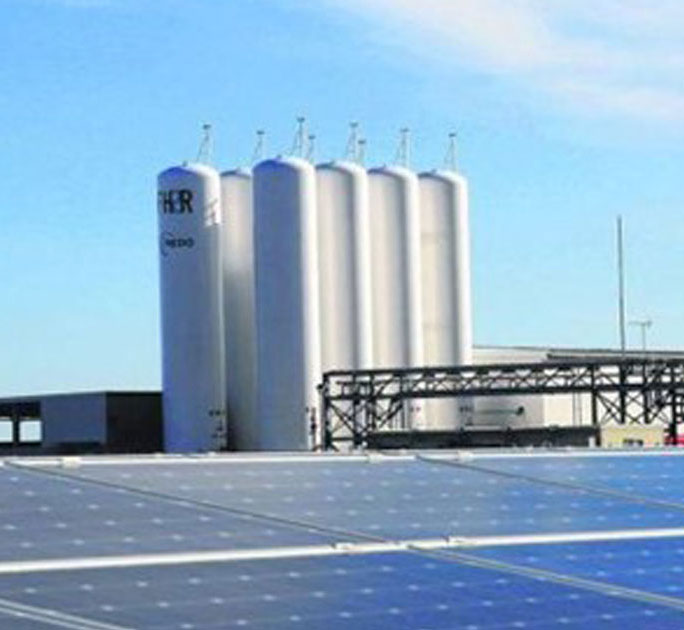Those from the older generation tend to place a stronger emphasis on ESG as an investment solution, observes DBS Private Bank's Mr Poon. They are motivated to venture into ESG investments more for its long-term outperformance potential and risk management benefits. BT FILE PHOTO
A FOCUS on environment, social and governance (ESG) issues is often described as a concern of only the youth, but that is not a true reflection of the beliefs of the older generation - of whom some are also quietly pulling their weight to drive the ESG agenda.
Diving beneath the surface, it becomes clear that the so-called generation gap when it comes to sentiments towards sustainability is likely to be a myth instead of reality.
"Our observations of our older clients' behaviour suggest that their influence and impact on driving positive ESG outcomes ought not to be discounted," said Joseph Poon, group head of DBS Private Bank.
There are many reasons why the older generation has taken longer to come round to ESG.
As most of the region's wealth only saw a surge in recent decades, many of Asia's wealthy had actually started out with little to their name.
The patriarchs and matriarchs of today had built up their businesses from the ground up, toiling for years to become where they are now.
With so much of their focus trained elsewhere, ESG was considered at best a luxury or afterthought. There were also fewer available avenues to address ESG issues at the time.
As such, the baby-boomer generation - often the patriarchs and matriarchs of family businesses - tends to get stereotyped as being less concerned about ESG issues.
Growing focus
"We're seeing a gradual but clear shift among our clients, who have become increasingly aware of the importance of ESG and its profound impact on our planet, people, and profit," noted Mr Poon.
He added that these older clients are also fast realising that ESG issues can impact investments and business outcomes.
But given their lack of familiarity and exposure, Mr Poon said that older clients tend to mistake the driving of ESG outcomes as being synonymous with charity or philanthropy.
"For some of them, the belief that prioritising ESG outcomes would also mean having to sacrifice or de-prioritise financial returns was a clear red line that can't be crossed," he noted.
"Not optimising financial returns would surely threaten the family's wealth position and future generation, which would also destabilise the very fabric of the family's unity and legacy."
As a result, it was not surprising that older-generation clients tended to stick to investments that had a sole purpose of generating financial returns for shareholders, he added.
He observed that once they developed a better understanding, older clients became more open to exploring how their investment choices can both drive better corporate ESG behaviour, and also secure a higher chance of better risk-adjusted returns in the long run.
Millennials, on the other hand, have been vocal about ESG and driving change in this space, with prominent teenage figures such as Greta Thunberg shining a spotlight on sustainability matters that often get ignored.
These youths are also putting their money where their values are.
In a report by MSCI published last year, 89 per cent of millennials expect their financial professionals to take into account a company's ESG attributes and impact before recommending any investment opportunity.
This phenomenon can be attributed to many factors such as the global nature of youths' global education, careers and networks.
Information, be it on sustainability or investment options, is also much more easily accessed now than ever before.
Same same, but different
Even as ESG gains momentum across all age groups, there are also several differences in the way the different generations approach the topic.
Compared with youths who grew up in a vastly different environment, older clients tend to take more time to understand and appreciate the impact of ESG, said Mr Poon.
This comes as millennials are generally more conscious about sustainability matters and their impact on society, and tend to embrace the ESG proposition more readily.
Those from the older generation also tend to place a stronger emphasis on ESG as an investment solution, observed Mr Poon. They are motivated to venture into ESG investments more for its long-term outperformance potential and risk management benefits.
As such, they are more focused on and receptive to understanding how the inclusion of ESG criteria in the investment selection process can improve and protect performance, and tend to be less receptive to approaching ESG in terms of thematic investments.
These people also tend to have a stronger appreciation of the importance of "G", or governance, in ESG.
"This stems from their personal experience - many of Asia's wealthy tend to be owners or in positions of influence of a business, and are well-versed with and well-placed to understand the possible business implications of governance matters," he said.
They are also inclined towards the "S", or social aspect, especially for clients who started with very little and thus understand what it is like to be in that position. These clients often have a strong desire to give back, especially to their local hometowns and communities.
For older clients, Mr Poon said that "E", or environment, currently seems less evident as a priority - especially so for those who come from emerging economies.
But DBS sees this changing in time as mindsets shift, he said.
As for the millennials and Gen Zs who are joining or taking over family businesses, there are those already looking at how to incorporate responsible practices and ESG values in the existing business, said Mr Poon. Some are already taking a bigger leap and driving the transition towards building a more sustainable business.
Other next-gens have also founded their own startups - these tend to be more predisposed to building sustainable businesses and engaging social enterprises, he noted.
A continuum
That being said, even as the different generations embark on their respective ESG journeys, the pace of growth as a whole will also differ depending on markets.
More economically developed countries are generally more open to focusing on sustainability. By comparison, countries in earlier stages of socio-economic development - where survival remains a challenge - would be less so.
"It's easy to criticise the use of coal for cooking, but this could be necessary for rural communities where no other alternatives are affordable or available," said Mr Poon.
He pointed out that different ESG agendas can sometimes conflict with one another, and there is no one-size-fits-all solution.
Just like how the older generation may be at a different stage compared with millennials when it comes to appreciating the importance of ESG, the key is to focus on progress instead of making pointless comparisons.
"In my view, ESG is more of a continuum than an absolute - it's more about moving in the direction that improves ESG outcomes, regardless of where the starting position may be," said Mr Poon.
This article was written by Vivien Shiao and first published in The Business Times on 21 Jul 2021.




